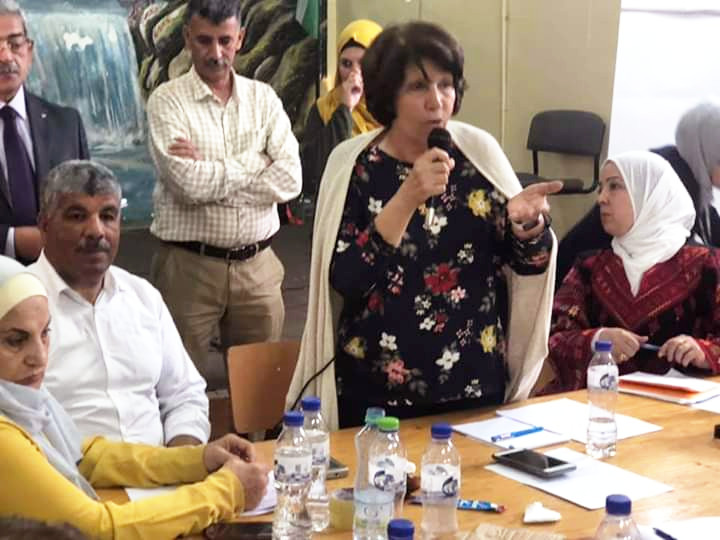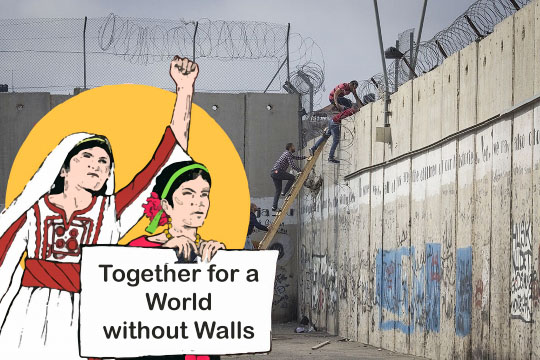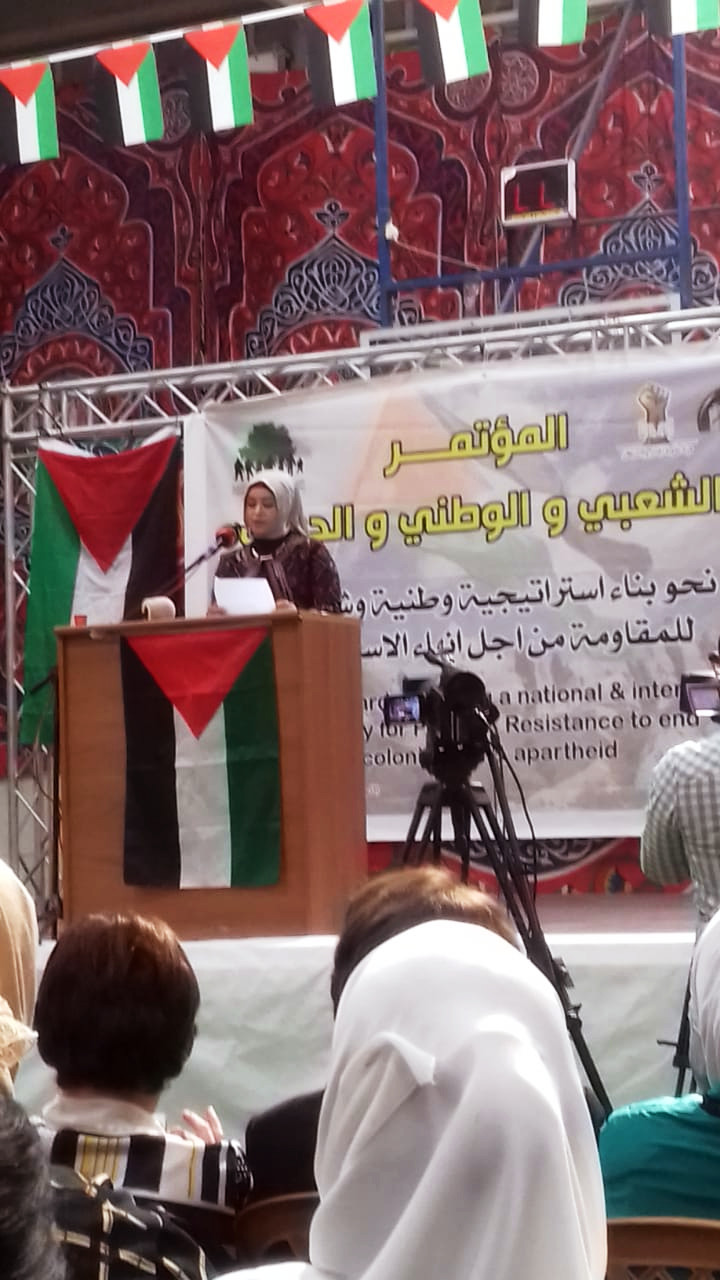Workshops to build the agenda for a common struggle have been the core of the second day of the 'United in Struggle' Popular Resistance Conference. Questions regarding the strengthening of popular struggle in Palestine, including better coordination and ore involvement of women and youth were discussed as well as the positions and efforts to link this struggle with international solidarity and a global effort for freedom, justice and equality.
Workshop # 1 discussed the role of Palestinian women in the popular resistance. The discussion concluded with plans to increase the involvement of women in popular resistance, overcoming the restrictions of traditions and religion limiting the role of women. The workshop proposed to hold a conference by women on popular resistance. Developing different forms of popular resistance lead by women was another commitment taken and includes building support to Palestinian women in Jerusalem in their everyday practices of resistance, strengthening the role of women in documenting the violations of human rights and reporting them locally and internationally, organizing of 'Know Your Rights' courses for women to be able to effectively act and lead action when they or their children get arrested. Participants committed to work to strengthen international solidarity with Palestinian women to resist the occupation, in particular to support the female prisoners in Israeli jails.

Workshop # 2 under the title of 'Palestine in a new global alliance of movements' aimed at developing plans to expose Israel's international agenda to finance and whitewash its occupation, while often supporting right wing repressive regimes, in particular through military relations, including security and surveillance technology. The need to unmask Israel's use of 'humanitarian aid' missions to whitewash its image was as well discussed. Participants discussed ways to contribute to research and fact finding as well as the importance of networking with other movements resisting oppressive regimes. Organizing of protests against the stakeholders involved in promoting Israel's international agenda and joining international action, such as the Global Day of Action for a World without Walls (November 9) was as well discussed.
Workshop # 3 discussed importance of monitoring of human rights violations and how to better coordinate efforts at national and international level. It was highlighted that better communication on violations on the ground between Palestinian activists and international supporters will increase impact, facilitate access to media and strengthen the steadfastness especially of the most targeted communities. Participants wanted to increase the number of international delegations visiting Palestine and evaluate the impact of international presence on the ground, while at the same time organising trips for Palestinian ativists abroad to expose the violations of human rights as well as to spread the Palestinian narrative.
Workshop # 4 on ways to strengthen popular resistance included recommendations on how to foster a culture of popular struggle by unifying the efforts of the popular committees, strengthen the support by political parties and authorities as well as the role of the youth in the struggle and teaching values of solidarity and organizing in the schools.

Workshop # 5 on Boycott, Divestment and Sanctions underscored the importance of coordination between organizations supporting BDS around the world and deepening the efforts to hold governments and companies complicit with Israeli violations accountable by activating different levels of struggle, from work in universities to legal support for BDS.
A final workshop about international law and UN resolutions relating to Palestine was held in order to give participants more insight into the scope and possibilities available to struggle for Palestinian rights from a legal perspective.




